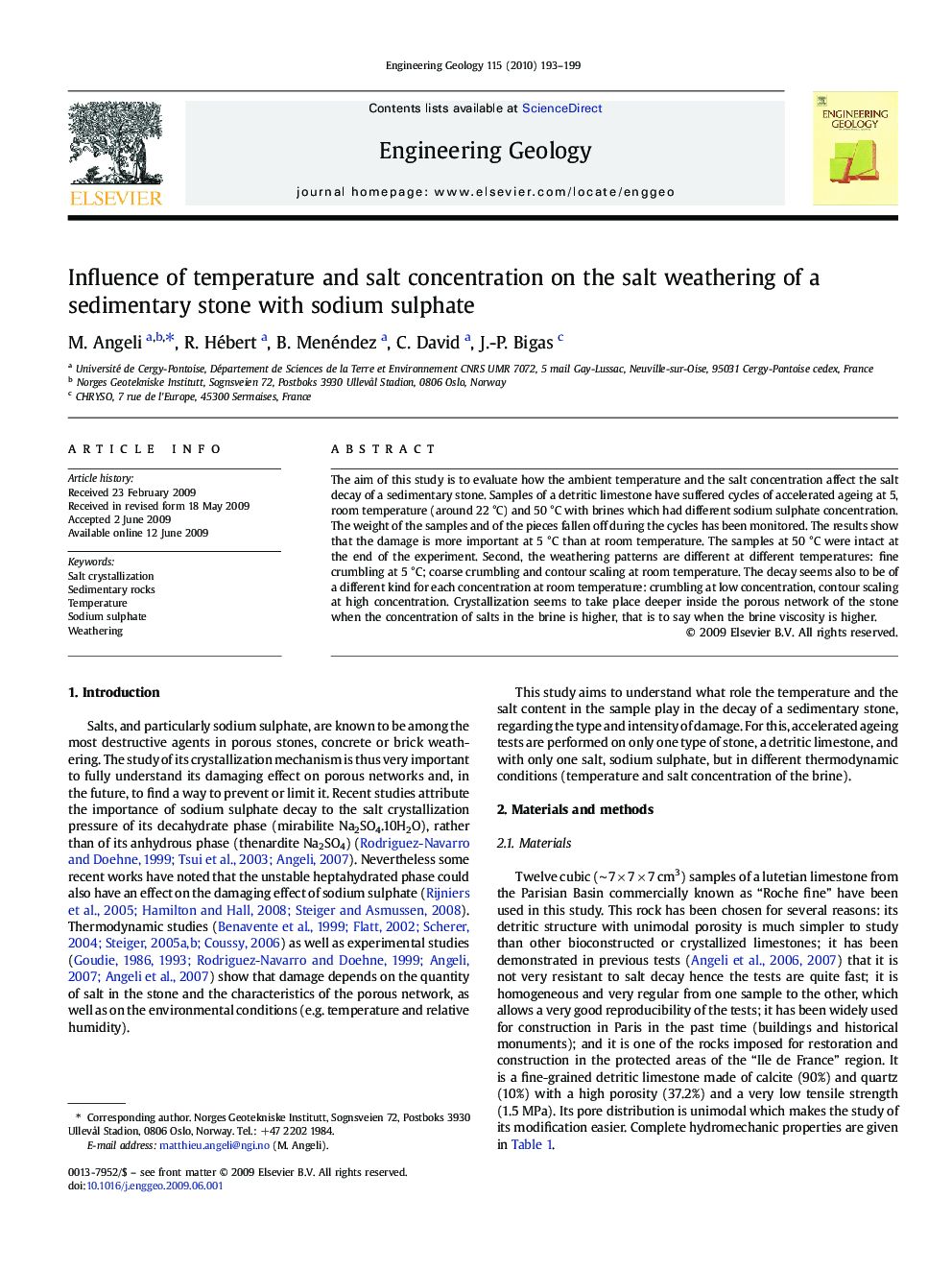| Article ID | Journal | Published Year | Pages | File Type |
|---|---|---|---|---|
| 4744533 | Engineering Geology | 2010 | 7 Pages |
The aim of this study is to evaluate how the ambient temperature and the salt concentration affect the salt decay of a sedimentary stone. Samples of a detritic limestone have suffered cycles of accelerated ageing at 5, room temperature (around 22 °C) and 50 °C with brines which had different sodium sulphate concentration. The weight of the samples and of the pieces fallen off during the cycles has been monitored. The results show that the damage is more important at 5 °C than at room temperature. The samples at 50 °C were intact at the end of the experiment. Second, the weathering patterns are different at different temperatures: fine crumbling at 5 °C; coarse crumbling and contour scaling at room temperature. The decay seems also to be of a different kind for each concentration at room temperature: crumbling at low concentration, contour scaling at high concentration. Crystallization seems to take place deeper inside the porous network of the stone when the concentration of salts in the brine is higher, that is to say when the brine viscosity is higher.
